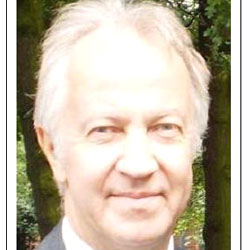Rogge Explains Wrestling Decision
February 14, 2013
Jacques Rogge sounded like a secretary-general of the United Nations as he proclaimed a mission of peace at the conclusion of the IOC’s latest executive board summit.
Wrestling and cycling both came in for the one-man pacifying treatment from the president of the International Olympic Committee.
First up was the issue of wrestling after the board’s decision on Tuesday to push it towards the exit door of the Olympic Games from 2020. Not surprisingly, order the decision had met a sharp backlash from the sport worldwide.
Rogge said: “We knew even before the decision that whichever sport
was not included in the core program would lead to criticism from the followers of that particular sport.
“I have already had contacts with the president of FILA, Mr [Raphael] Martinetti, and we have agreed to meet at the first opportunity to have a discussion.
“FILA has reacted well to this disheartening news. They have vowed to adapt the sport and vowed to fight to eventually be included in a 2020 slot.”
Rogge thought that the IOC had “established a fair process” allowing any out-of-favour sport to compete on equal terms with other contenders to access the 2020 Games programme.
He also defended an apparent conflict of interest issue whereby board members linked to a particular sport are allowed to be involved in the voting.
Executive board members such as Sir Craig Reedie, C K Wu and Juan Antonio Samaranch Jr are closely associated with badminton, taekwondo and modern pentathlon.
Rogge said: “We look for quality in our members. They must have wide knowledge of sport: 13 in our executive board have participated in the Games, including myself. I’m proud of the fact that 25pc of the IOC has participated in the Games. This means it can take decisions which are sound and intelligent.”
One such IOC ex-competitor is Irishman Pat McQuaid who heads the international cycling federation, UCI. Both have come under heavy pressure in the wake of the Lance Armstrong doping revelations and cheat confirmations.
The UCI and the World Anti-Doping Agency have been involved in a protracted stand-off about the best way forward.
Rogge insisted the IOC had full confidence in McQuaid’s leadership of the UCI. He added: “There is an ongoing discussion between WADA and the UCI and we are calling upon both parties to reconcile with each other to find a solution to the crisis.”
Still on the peace trail, Rogge said he was also hopeful that “a yellow card will not be needed” for the organisers of Rio 2016 Olympics after growing concern over a number of staffing changes and potential venue reviews.
He was also waiting to learn more from the Russian Olympic Committee about the dismissal, on the apparent orders of President Vladimir Putin, of ROC vice-president Akhmed Bilalov.
Media reports stated that Bilalov had been removed because of delays and cost overruns in construction of ski jumps for the Sochi 2014 Winter Games.
Rogge said: “What I know is that Mr Bilalov has been discharged form his public functions, the Russian NOC will take steps to examine the issue and we have asked to be informed.”
In announcing that
{jcomments on}


